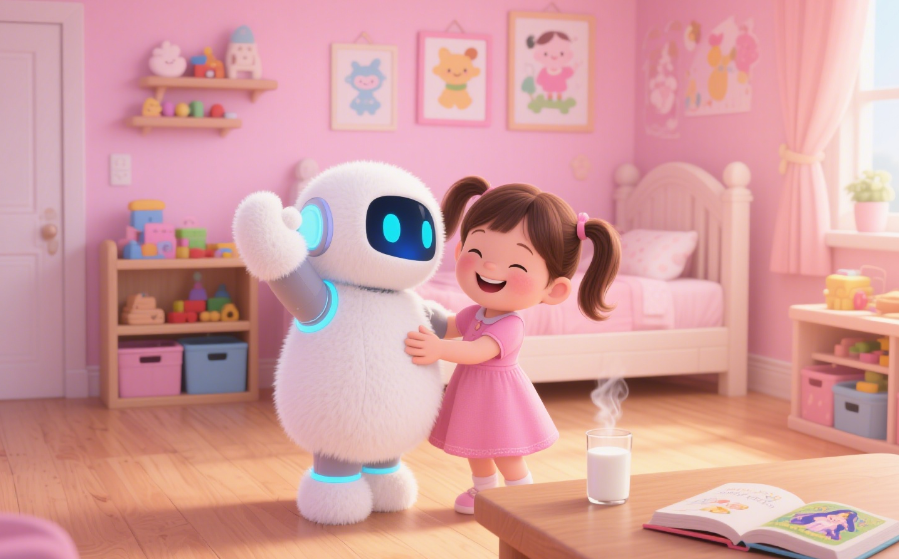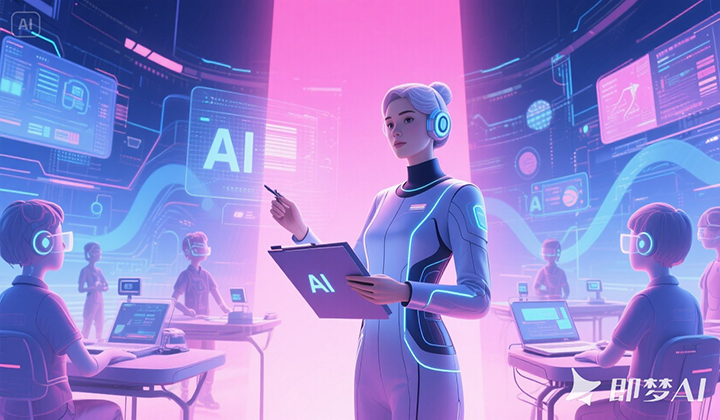Learning Intelligent Dolls: Small Upgrades, Big Impact
In recent years, the global AI toy market has shown significant growth. According to Research and Markets data, the global AI toy market reached $8.7 billion in 2022 and is projected to grow to $35.11 billion by 2030, with a compound annual growth rate (CAGR) of 16.2%. The Chinese market has been particularly active, with its market size expected to exceed 30 billion RMB by 2025. This growth reflects the internal demand for upgrading family education consumption—parents now have higher expectations for the educational attributes of children’s entertainment products, driving the transformation of traditional toys into new intelligent and educational carriers.

Technological advancements and shifting consumer mindsets jointly drive market transformation. Digital native children are more receptive to interactive and intelligent products, making the single-functionality of traditional dolls increasingly insufficient to meet their needs. "Learning intelligent dolls" that integrate the "doll + AI" model are gradually replacing traditional dolls and gaining recognition from more families.
Learning intelligent dolls break through the one-way output limitations of traditional educational products by creating immersive learning scenarios. By integrating AI technology, they build a composite "entertainment + education" environment, retaining the emotional companionship of dolls while adding educational functions such as knowledge transmission and ability development. This precisely aligns with the core demand for "learning through play" in modern family education. Relying on natural language processing and machine learning, intelligent dolls can dynamically analyze children’s learning behaviors. By continuously collecting data such as conversation content and problem feedback, the system accurately identifies individual interest preferences and knowledge gaps, then generates customized learning plans. Beyond education, intelligent dolls play a key role in children’s mental health. Their emotional computing technology can recognize emotional signals in speech tone and semantic features, providing instant responses to negative emotions like loneliness and anxiety. In practice, some products already offer counseling for school-life troubles and emotional feedback for achievements, serving as a valuable supplement to emotional support in family education—especially for one-child and dual-income families.
Currently, manufacturers including iFLYTEK and BubblePal have launched AI-based learning intelligent dolls that integrate language learning, scientific enlightenment, and other knowledge modules into gameplay through interactive forms like role-playing and scenario simulation. Similarly, Aoyun Cloud Innovation’s intelligent doll products integrated with pitalk AI have demonstrated unique value in both family education and emotional companionship. pitalk AI dolls break through single-subject tutoring models to build an educational system covering multiple domains such as language learning, logical thinking, and scientific literacy. Using a "question-guided" teaching method, they guide children to independently deduce problem-solving approaches by analogizing real-life scenarios or past game experiences when solving math problems. In English teaching, they combine role-playing with speech assessment technology to improve both pronunciation correction and contextual application, cultivating active learning abilities. Based on continuous accumulation of user behavior data, the dolls establish individual emotional profiles for children to implement differentiated companionship strategies—for example, recording preferred story types and emotional triggers to proactively generate personalized responses during interactions. When detecting low mood, the system automatically switches to a soothing mode, providing emotional counseling through soft music and inspirational stories to create a warm companionship experience.












